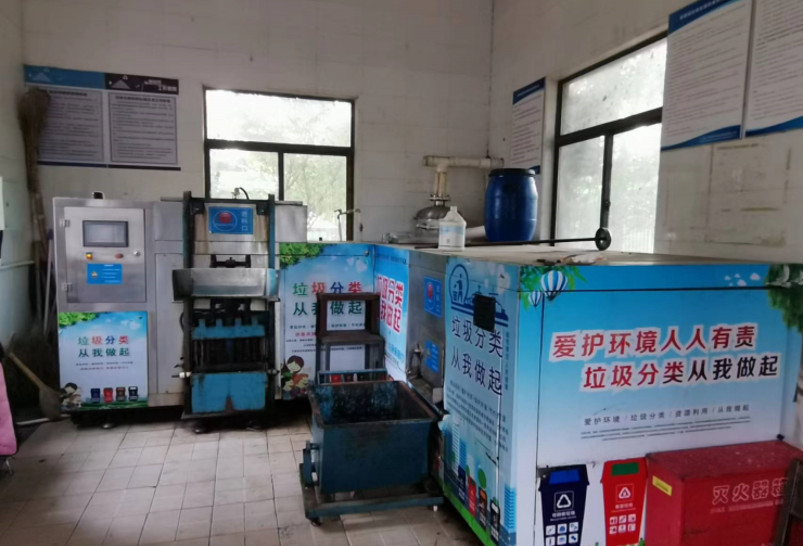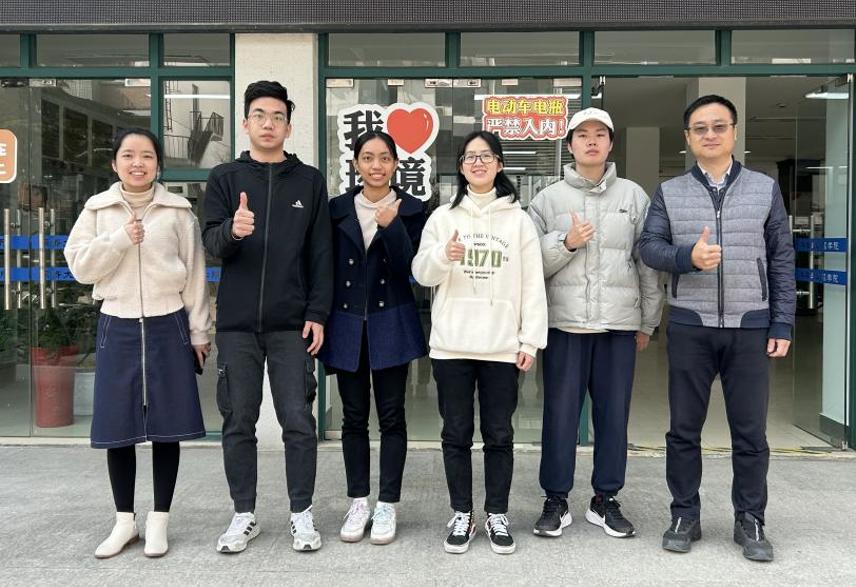The output of wet waste in the community is increasing with the rapid development of the city, and its in-situ reduction, harmlessness and resource treatment have become an urgent demand for urban development. Directed by professor Dong Bin from college of Environmental Science and Technology, the innovative team of the undergraduate actively explores a new method for in-situ resource treatment of organic waste in the community, develops the hyperthermophilic composting technology and creates a green low-carbon cycle from “dining table” to “green land”, aiming to help the construction of waste-free city and low-carbon community in Shanghai, this research findings won the Grand Prize of Tongji University in the last week.
According to the "2021 Shanghai National Economic and Social Devel opment Statistic Bulletin", issued by the Shanghai Municipal Bureau of Statistics, the daily production of wet waste in Shanghai has exceeded 10,000 tons. Wet waste has high organic matter content, high cost of cleaning and transportation, and high treatment pressure. If it is not treated in time, it will lead to secondary environmental pollution problems such as odor and leachate. In addition, the wet waste also contains a large number of pathogenic microorganisms and new pollutants such as antibiotics, so it is of great significance for public health safety to achieve pollution blocking before resource utilization. Therefore, how to realize in-situ wet waste reduction, harmlessness and resource utilization becomes one of the hot issues of public concern in recent years.
Aerobic composting is the mainstream way for in-situ treatment of wet waste in the community. However, traditional aerobic composting has problems such as long composting cycle, low maturity of products and high energy consumption in the composting process, so it is difficult for wet waste to achieve daily cleaning, and the composting products cannot be directly used.
In view of the above problems, under the leadership of Professor Dong Bin, four undergraduates of Tongji University of Environmental college actively explored the use of hyperthermophilic composting technology (fermentation temperature≥80℃) to treat wet waste, and realized the in-situ efficient treatment and resource utilization of wet waste in the community.
The team used high-temperature spring sediment samples from geothermal resource-rich areas such as Yunnan and Hainan in China to screen and isolate four new extreme thermophiles, and developed extreme thermophiles suitable for ultra-high temperature aerobic fermentation, facilitating the localization process of extreme thermophilies in China. On the basis of the research and development of microbial agents, the team also explored the humification and pollution blocking efficiency of wet waste hyperthermophilic composting through experiments, developed technologies to simultaneously improve the humification rate of organic solid waste and block new pollutants, and designed odorless miniaturized in-situ treatment equipment for the community. At present, the processing equipment has been piloted in Yuyangyuan Community, Songjiang District, and has been well received by the community residents.

In addition, based on the "iCLOUD" concept(Intelligence, Clean,Localization, Odorless, Utilization and Decrement), the team puts forward a new scheme of "zero waste" treatment of community wet waste,the" bacteria + process + equipment ".That is, after the waste classification at the front end, the wet waste and green waste are subjected to in-situ synergistic hyperthermophilic composting, and the composting products are directly applied to the green space as fertilizers and soil amendments, to achieve in-situ reduction, resource utilization and harmless treatment of wet waste and green waste. Under this treatment mode, wet waste treatment has higher efficiency, better product maturity, smaller equipment energy consumption, and is more environmentally friendly and community compatible.

In line with the two-carbon strategy and based on green development, the team of Tongji university will continue to focus on the problem of in-situ treatment of community wet waste , helping the construction of waste-free city and low-carbon community in Shanghai.